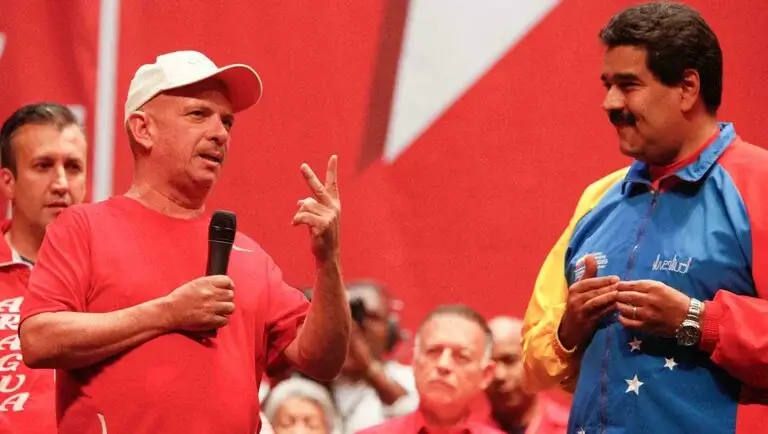Unveiling the Shadows: Carvajal’s Revelations and Venezuela’s Future

eyesonsuriname
1. The Forgotten Plea Bargain
Amsterdam, November 12th, 2024 – Hugo Carvajal, a former Venezuelan intelligence chief, made a plea bargain that has resurfaced, shedding light on the intricate web of corruption involving the Foro de São Paulo and Nicolás Maduro. Carvajal’s revelations have reignited discussions about the extent of corruption within the Venezuelan government and its ties to other leftist movements in Latin America. This plea bargain serves as a stark reminder of the deep-rooted issues that have plagued Venezuela for years.
2. Political Consequences for Venezuela
The political consequences of Carvajal’s revelations are profound. As the international community scrutinizes the Venezuelan government’s actions, there is increased pressure for transparency and accountability. The revelations could lead to further sanctions and diplomatic isolation, exacerbating the already dire economic situation in the country. Additionally, the opposition may gain momentum, leveraging these revelations to rally support for democratic reforms and challenge Maduro’s regime.

3. The Role of International Pressure
International pressure plays a crucial role in addressing the corruption exposed by Carvajal. Countries and organizations around the world must unite to demand justice and support the Venezuelan people in their fight for democracy. This includes imposing targeted sanctions on corrupt officials, providing humanitarian aid, and supporting efforts to hold those responsible accountable. By standing together, the international community can help pave the way for a brighter future for Venezuela.
4. Strengthening Civil Society
A key aspect of combating corruption is empowering civil society. In Venezuela, grassroots organizations, activists, and independent media play a vital role in exposing corruption and advocating for change. Strengthening these institutions and ensuring their protection is essential for fostering a culture of transparency and accountability. By supporting civil society, Venezuela can build a foundation for a more just and equitable society.
Outlook: Ending Corruption in Latin America
The fight against corruption in Latin America requires a multifaceted approach. Transparency and accountability must be at the forefront of this effort. Governments need to implement robust anti-corruption measures, including independent judicial systems, transparent procurement processes, and strong oversight mechanisms. Additionally, fostering a culture of integrity and ethical behavior is crucial. Education and awareness campaigns can help instill these values in future generations. By working together, Latin American countries can break the cycle of corruption and build a brighter, more prosperous future for all.
What are your thoughts on the potential impact of Carvajal’s revelations on Venezuela’s political landscape?









